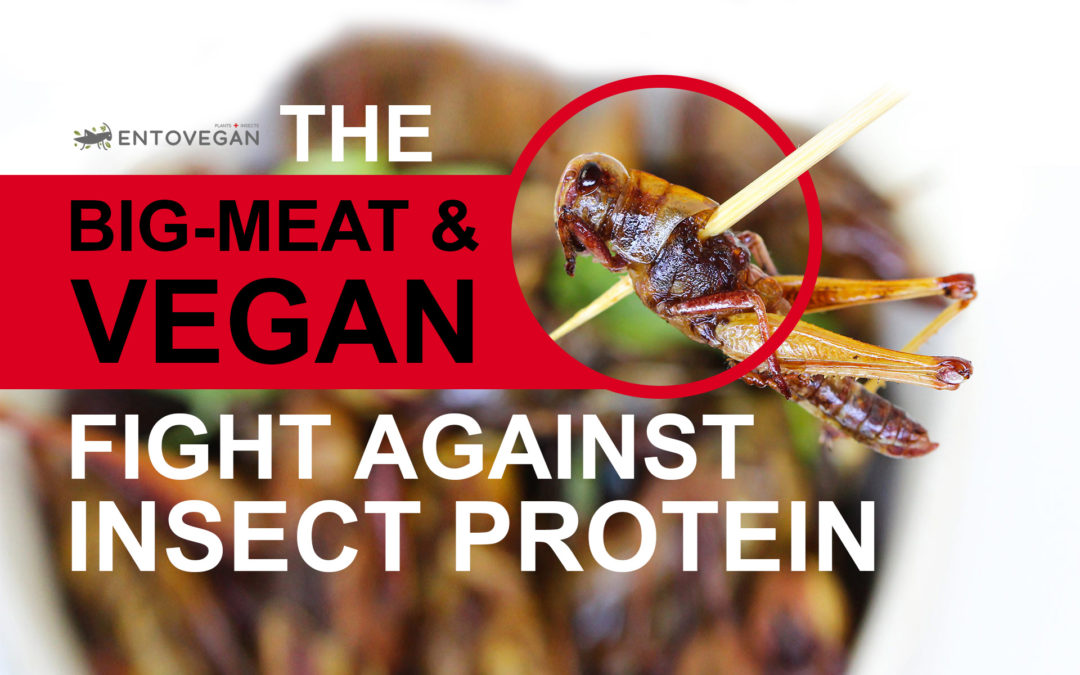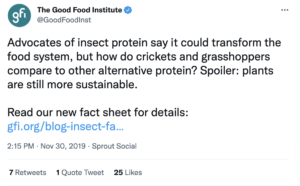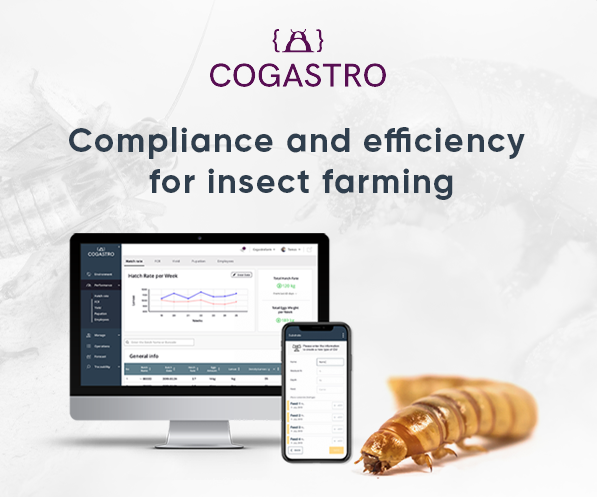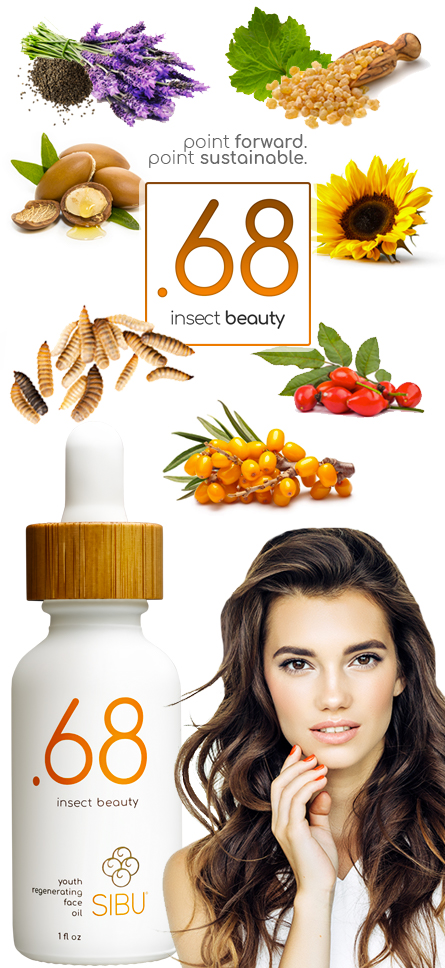I tend to be hyper-competitive and don’t mind conflict over ideas, but I’ve (mostly) avoided that to not alienate anybody in the insects space, since most people I’ve met are super friendly and peace-loving individuals and it seems most people haven’t wanted to make waves with big meat or vegan groups.
As I’ve talked about before, I believe in pointing positive, not spewing negativity, and there’s also no need for unnecessary division between groups who underneath it all, do want a better planet.
However…!
In light of the recent “fact sheet” hit piece on insects from GFI.org, I think just trying to be friends with everybody (speaking in general terms with “industries” not individuals) is very naive. The fact is, big meat and anyone connected to hardline vegans and even many related to other types of alternative protein do NOT want to see insects as food(+) succeed.
[UPDATE: They deleted the post, but the tweet to the now-deleted post is still there.]
I don’t mind wading into it because extreme vegans already despise me for co-opting their precious word to make my own new one (entovegan). But people in the insects industry need to realize that the more successful insects get as a solution, the more they’ll be attacked and with complete disregard for facts.
It doesn’t seem like most are prepared for this, as at least in the media it’s been nothing but love and fawning over the #futureoffood the past few years. But that’s a dangerous place to be, as it leaves the sector open to getting blindsided by made-up studies (funded by meat companies with financial interests in the alt-protein sector, or soy, pea, and other plant-protein entities). This has already started happening.
Coupled with the potential for this, is the utter lack of evidence proven by most of us in the insect sector that bugs are the most sustainable, healthy solution. Sure, there has been a ton of R&D done in lab settings. And there are lots of infographics out there (um, uh…about those infographics…).
But we need data in a commercial setting. I haven’t seen it. And I’m vocal about it, because if I’m wrong, I’m sure I’ll hear all about the many reasons why I’m wrong! 🙂 (Still waiting.)[UPDATE: Protix/Buhler have done an LCA analysis on insects as feed.]
And yes, I have been promoting Entovegan anecdotally too – it’s my personal journey, my body’s results, but it’s hardly scientific.
That isn’t going to stop me from proclaiming what I believe to be true from my experience, and I’m completely open to being an industry guinea pig and being part of actual scientific testing (well, within reason, I’m not going to deprive myself of B12 for 5 years just to see if insects later bring me back from the brink of death haha).
I’m pretty sure there are plenty of highly respected insect researchers out there who’d happily accept funding to do in-depth studies.
But as millions pour into the insect production space, data is going to be vital in order to demonstrate the effectiveness of insect farming and nutrition, in order to get out ahead of any attacks. At present it seems like we’re building a house of cards, and if for any reason the winds of media coverage shift from fawning over bugs to dark clouds forcefully blowing our way from staunch vegan or big meat agendas, it seems like insects as food and feed will be in a tenuous position.
Tell me why I’m wrong, or what your company is doing to get out ahead of this and clearly prove insects as a sustainable, healthy solution.
Because honestly, what it seems like lately is, because of so much positive feedback to date, and so many awards at pitch events, and even quite a lot of funding especially on the feed side, as an industry we’re having a self-congratulatory moment without a lot of real-world evidence to substantiate the rosy outlook.
And I’ll include myself in that too, I can and will do a better job of detailing the actual sustainability and nutritional impact of being Entovegan. That’s at the core of what Entovegan Certified is all about.
The difference though is I’m more than willing to engage all-comers in any kind of fight they want to bring. I’ll be happy to debate insects vs. whatever sustainable solution. I understand that big meat is not my friend. I get why vegan extremists gang up to attack my social media with attempted shadowbans. Yippee ki-yay, bring it on.
Because conflict is inevitable at some point anyway – thinking that every different approach to “sustainable solutions” means we’re all going to be singing kumbaya for decades hence is ridiculous.
The more commas and zeros are concerned, the less it’s actually (just) about impact on people and planet, and the more it’s about financial returns.
How many startup founders even realize that is at the core of the game they dove into?
I’m not criticizing VC money, at all – I 100% believe in it as a positive catalyst and the best way to scale quickly and grow an industry – my point is simply that if you’re VC-backed (which essentially the entire insect vertical is) you’re not building a company to pass down to your kids, you’re building a company that damn well better go from seed to series in a couple years and have an exit within the decade.
How much real impact can you have in 3-5 years, before you’re acquired by a global conglomerate?
Hopefully a whole helluva lot, but the answer to that question actually isn’t the point – the point is that it IS a race to find sustainable food solutions, and it IS going to get hyper-competitive, and it IS going to get cutthroat.
And your investors WILL start pressuring you in a couple years when they get buyers remorse seeing things like (the next) Beyond Meat backers making 100x on their investment, and your insect brand is still happily slogging along, supporting every sustainable startup out there but also still mired in figuring out the right eco-friendly product-market fit.
What happens if the tide turns, and the wave of positive support turns negative because of some unfortunate product recall? What happens if investors don’t get the expected returns right away, and founders start seeing the end of the runway approaching at high speed?
I don’t think our industry is ready for it, quite frankly. And I’ve avoided saying much, because everyone’s just so damn nice, but come on. A little good ‘ol fashioned American hyper-competitiveness would frankly be a good thing for the insect space. I’m sure that’ll probably “Ok, boomer” me now, but whatever. It’s the truth.
But rather than being defensive, let’s take the high road and focus on our positives, right? Sure. We don’t have to attack other sectors. Build the best skyscraper by building one, not by tearing other people’s buildings down.
The best defense is a great offense anyway, and if insects are TRULY the world’s most sustainable protein, all we need to do is show the data. Before other industries make up their own for us, to make insects look bad in order to shine a more positive light on their less-adequate solution.
You can criticize me for dropping a fly in the ointment here if you want, but I want to win, and I want insect solutions to win. Not every idea that claims to be “sustainable” is equal.
Cool, you’re making soy-based plastic? Kudos for your pure motives, but insect chitin is more sustainable than soybean extracts.
“But Josh, the world needs ALL the solutions!” No, actually it doesn’t.
Imagine if the hundreds of millions that went into Beyond Meat went into insect protein producers instead of highly processed, quite unhealthy patties for fast food.
Even with double the number of insect producers than what we currently have and all of them producing at max capacity, we’d still be at less than 1% of global fishmeal production.
So you tell me, what’s more important, a strictly vegan, sodium and preservative-laden fast-food burger, or making a real dent in fishmeal production which is arguably as big of a threat to the world’s oceans as the plastic replacements are aiming to eradicate with more soy?
I could go on. The point is, there’s too much ooo-ing and aww-ing over every theoretical solution or startup that purports to have some kind of impact on “sustainability”. The reality is, every company that is backed by investor money – even if it’s from impact investment – is out to win (or at least should be), as quickly as possible.
Winning means return on investment and it means social impact (sustainability and human benefits).
Celebrating the competition in other sectors then is silly. I’m not going to celebrate a soy-based ‘solution’, either for plastics or meat. Soy sucks. There are insect-derived solutions for both plastics and meat which are better!
Nearly everyone in the insect industry who might be reading this has received investment. That means your obligation is to win, and win fast. And at this point, within the industry a rising tide raises all ships, but the same doesn’t go for the entire gamut of possibilities out there that might support SDG’s. It’s a race for market share.
In 2020, with so many more insect producers scaling up production and so many more brands making inroads into the consumer consciousness, it’s time to compete – with real numbers, and a confidence that insect-based solutions are better than others. Sorry peeps, it really is an us vs. them situation in terms of ideas and execution.
Because history has already shown that the other sustainability-focused sectors have no qualms about demonizing, denigrating, and falsifying the insect industry in order to make themselves look better.
Are you ready to go head-to-head with some of the most vocal, vicious segments out there? Because I’m pretty sure that big meat and extreme vegans are ready to come after insects, and not with group hugs.
Well, I’ll be your huckleberry…






